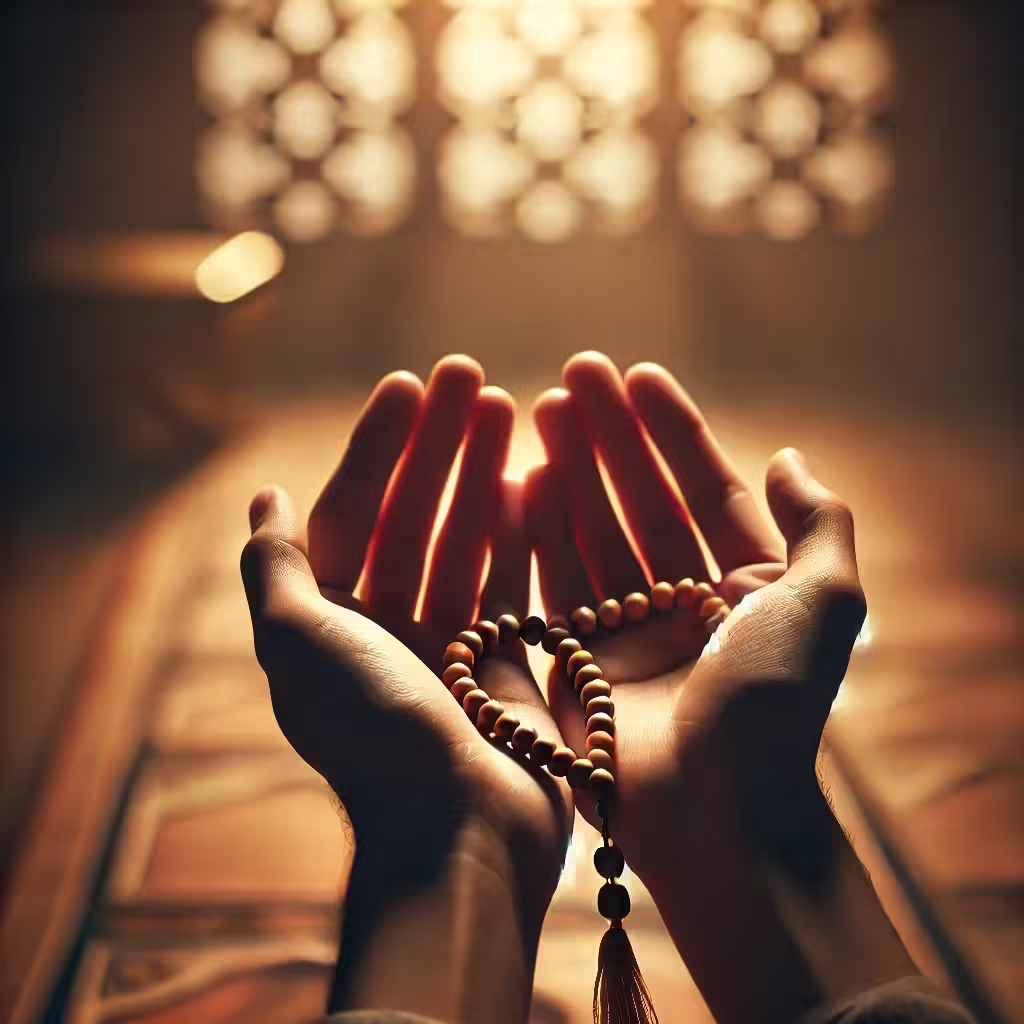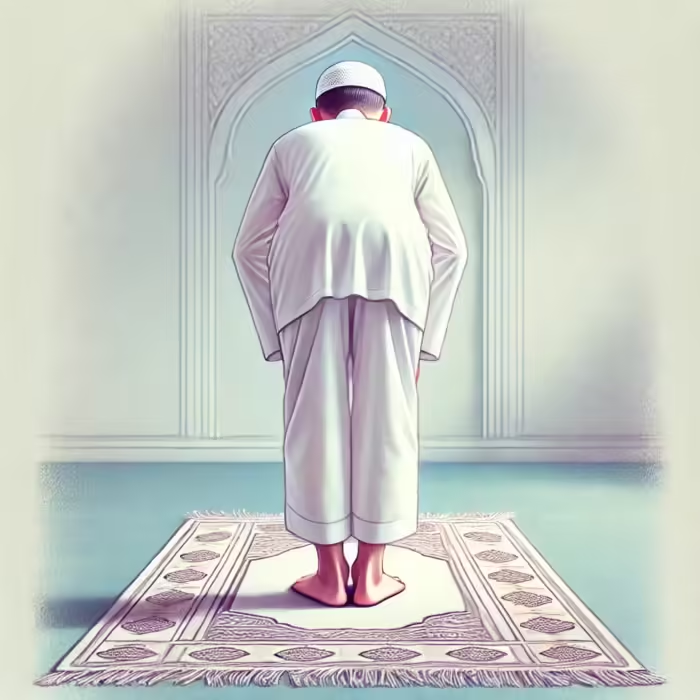Table of Contents
Introduction
This is the nineteenth article of a series dedicated to exploring prayer in Islam, how it should be performed correctly, how the righteous predecessors prayed, and highlights the significance of Rukoo’ (bowing) and true submission to ALLAH Almighty. Click here to read the entire series, ALLAH willing.
Proceeding to Rukoo’ After Recitation
After the recitation that comes after Al-Fatihah, we move into Rukoo’ (bowing). This act of Rukoo’ serves as a deeply meaningful step in prayer.
The Prophet Muhammad (Peace be upon Him) described Rukoo’ with the words,
“Glorify your LORD in Rukoo’ (bowing)”1
Yet, many of us may not fully recognize the value of glorifying ALLAH in Rukoo’. We might spend long moments standing in prayers like Taraweeh, reciting a whole Juz’ (part) of the Quran, or during Tahajjud, where we stand for extended periods. In Sujood (prostration), we often share our concerns, offer heartfelt supplications, and linger in our requests. However, in bowing, we may find ourselves simply repeating, “Subhana Rabbi Al-Azeem, Subhana Rabbi Al-Azeem, Subhana Rabbi Al-Azeem”, and then moving on.
Experiencing the Sweetness of Glorifying ALLAH in Rukoo’
Glorifying ALLAH in Rukoo’ carries a unique sweetness that, if truly experienced, would transform how we approach this act, drawing us to spend more time in it. Rukoo’ is a profound declaration of humility before ALLAH Almighty, as we bow down in the deepest submission.

Historically, bowing was difficult for the Arabs, who viewed it as a challenge to their pride and dignity. One companion of the Prophet (Peace be upon Him) even pledged allegiance on the condition that he would not bow, only prostrate while standing, saying, “I will pledge allegiance to You and accept Islam with You, but I will not bow”. However, the Prophet (Peace be upon Him) reminded,
“Glorify your LORD in Rukoo’ (bowing)“2
The Significance of Saying ‘Subhana Rabbi Al-Azeem’
In Rukoo’, we say, “Subhana Rabbi Al-Azeem” (Glorious is my LORD the Magnificent). Notice the words carefully; we do not say “Subhana Al-Azeem” (Glorious the Magnificent), but rather “Subhana Rabbi Al-Azeem“. This phrase grants us the honor of affirming our servitude, submission, and humility before ALLAH Almighty, while also recognizing the great privilege of having HIM as our LORD. O LORD, it is enough honor for me that YOU are my LORD, and enough pride for me that I am YOUR servant:
“And among what increased me in honor and pride
And I almost walked over the stars with my feet
Is my entry under YOUR saying ‘O My servants’
And that YOU made Ahmad (Muhammad) a prophet for me”
Ibn Al-Qayyim once said, “By ALLAH, if not for the smokes of desires clouding the heart, hearts would soar with joy when a servant says, ‘My LORD'”. This joy is reflected in Rukoo’ with the phrase “Subhana Rabbi Al-Azeem” (Glorious is my LORD the Magnificent) and in Sujood with “Subhana Rabbi Al-A’la” (Glorious is my LORD the Most High). Such words embody true glorification.
Diversifying the Supplications in Rukoo’
It is recommended to vary the supplications while glorifying ALLAH. At times, say “Subhana Rabbi Al-Azeem” (Glorious is my LORD the Magnificent), and at other times, “Subhana Rabbi Al-Azeem wa bihamdih” (Glorious is my LORD the Magnificent, and praise be to HIM). You might also say, “Subboohun Quddoosun Rabbul-Mala’ikati war-Rooh” (YOU are the Most Glorious, the Most Holy, and the LORD of the Angels and of the Spirit) or “Subhana Dhil-Malakooti wal-Jabarooti wal-Kibriya’i wal-Azama” (Glory be to the One Who has all power, sovereignty, magnificence and might).
Each of these phrases holds profound meanings, and reflecting on them adds depth to glorifying ALLAH in Rukoo’. Contemplating their significance brings a sense of joy and comfort to the heart during Rukoo’. While many books delve into the meanings of these supplications, let us continue with our current discussion.
In Rukoo’, magnify ALLAH, increase in praising HIM, and speak from your heart to ALLAH Almighty. Glorify HIM in this moment, even beyond the usual supplications. For instance, you could say, “O LORD, YOU are the Great, YOU are the Almighty. O LORD, I was in distress, and YOU saved me; I was in hardship, and YOU rescued me. O LORD, how many times have YOU spared me from the consequences of my sins“. In this way, Rukoo’ becomes a moment of true interaction and connection with ALLAH.
Embracing the Act of Glorifying ALLAH in Bowing
Often, we find ourselves being too rigid. This Rukoo’—“Glorify your LORD ” in it as our Prophet (Peace be upon Him) advised—is your gateway.
Therefore, go ahead and glorify ALLAH in bowing any way and with whatever words you choose. Continue your glorification, and the more you exalt HIM, the more benefits you will receive.

ALLAH says,
“Whoever is preoccupied with MY remembrance over asking ME, then I shall give him more than what I give those who ask”3
HE also says,
“l am with MY slave when he remembers ME and his lips move with MY mention”4
This praise can open closed doors and answer supplications. The more you praise, the more ALLAH Almighty will relieve your worries, respond to your requests, and fulfill your needs. So, in this Rukoo’, glorify ALLAH wholeheartedly.
Sources:
- Dr. Ahmed ElAraby. فاهم 36 | سلسلة تذوق العبادات – (1) الصلاة | مع د. أحمد العربي. YouTube Video.

